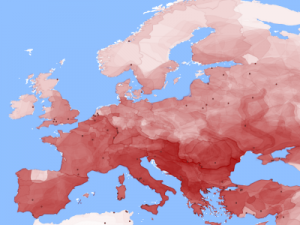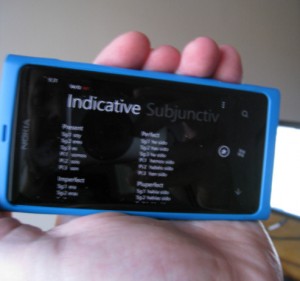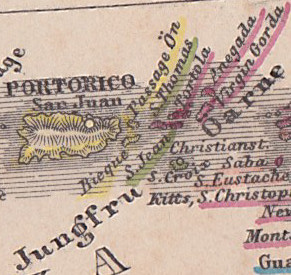The languages are not static; the languages evolve, new languages appear, and some languages disappear. Besides these changes the speakers might also migrate from one place to another.
This has happened in the history, and this goes on today.

Based on information of people migrations, I compiled a map that shows languages of Europe. This is not a typical map that shows what language is spoken where and today. Instead it’s a ‘heatmap’. The darker color, the more there have been different cultures and languages in the area.
Links:



